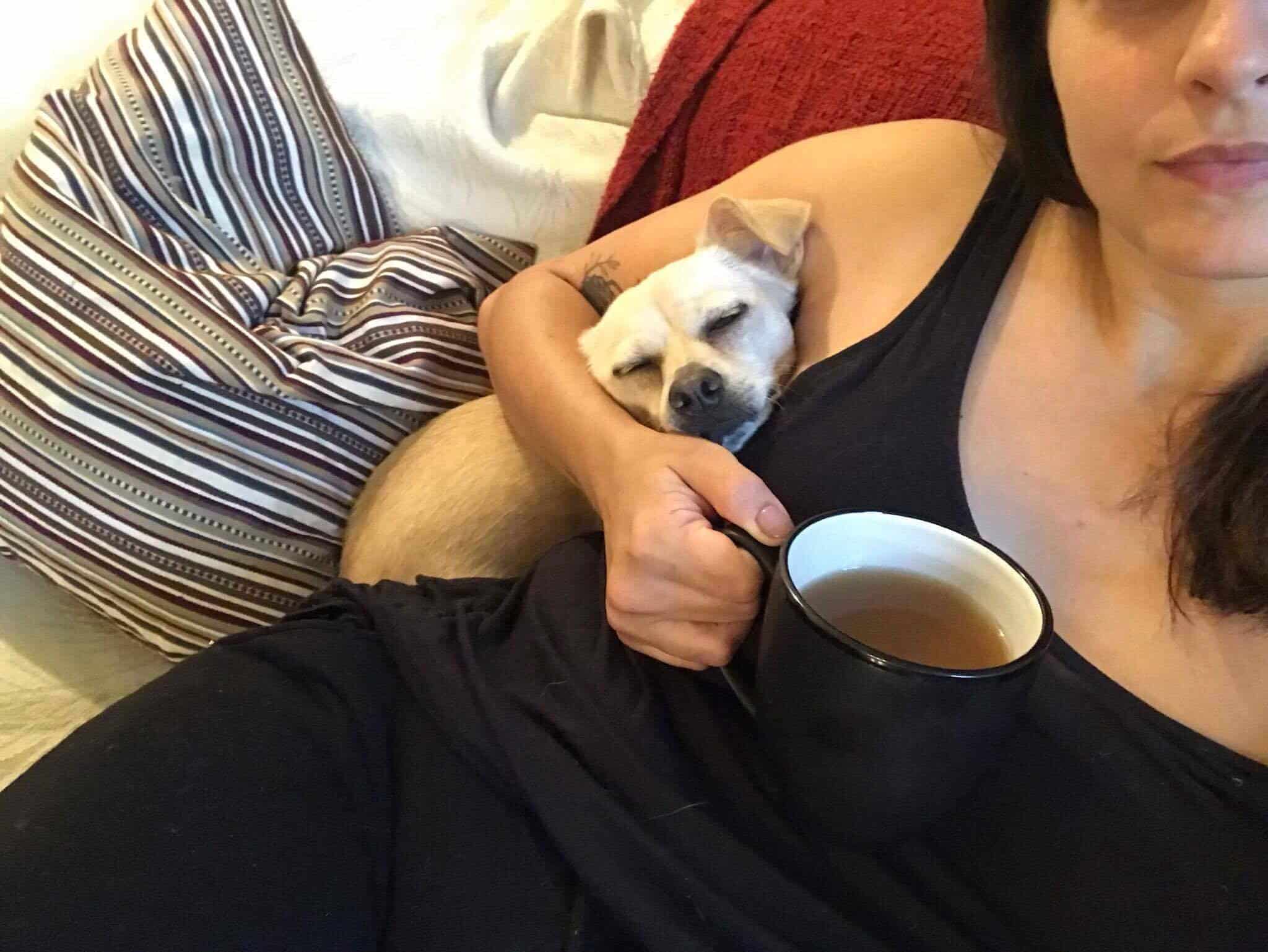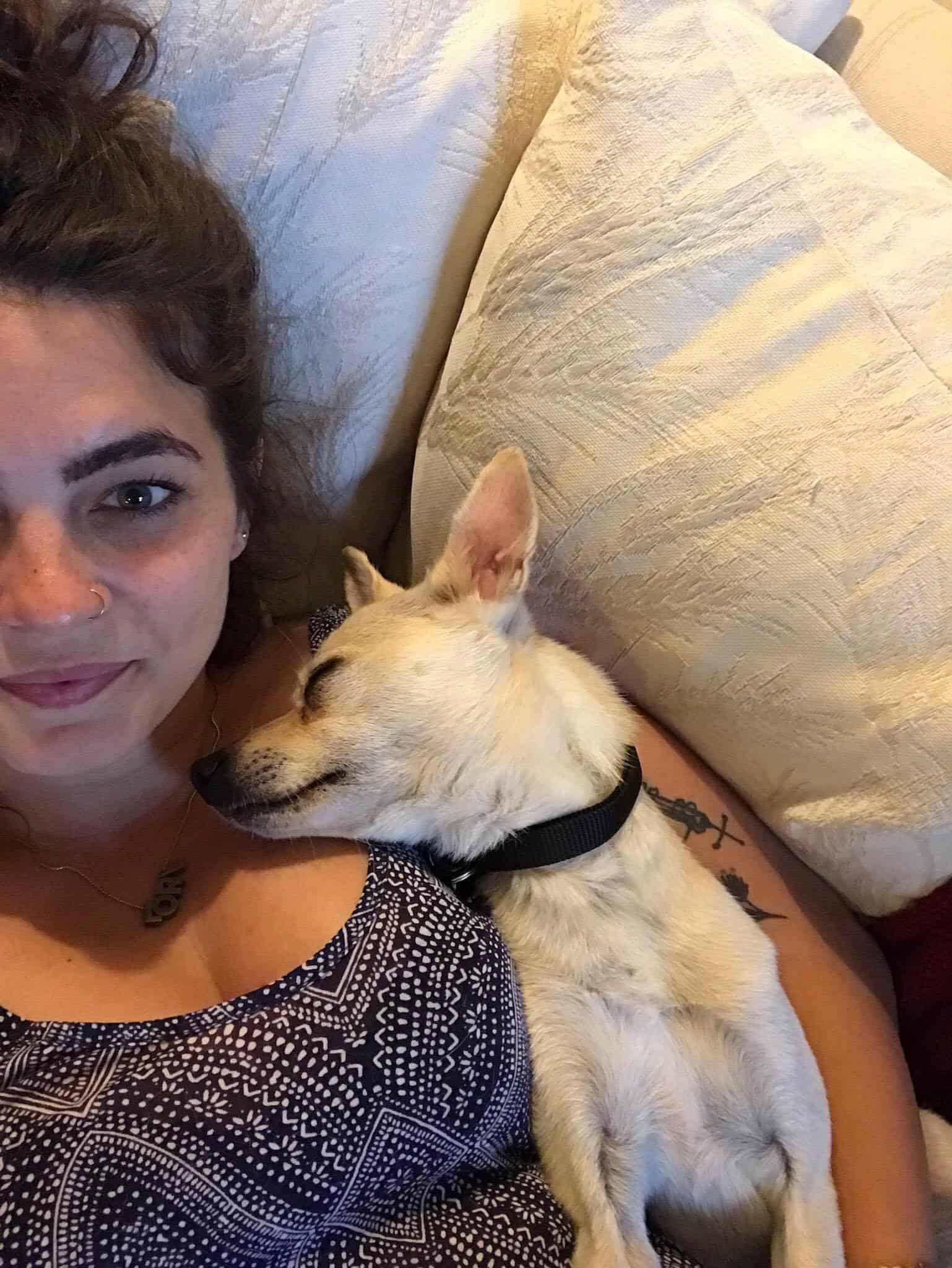Aspiring fur baby mamas: If you want a dog but have no idea how you’re actually going to go about it, consider a rescue dog first. So many dogs (local strays and displaced ones from Hurricane Harvey and other locations) already need homes, and you can give it a great one! Adopting a rescue dog isn’t easy, BUT it is worth it. This is according to my friend Laurel, who recently adopted a rescue dog. I talked to Laurel about her experience of adopting, training, and learning to love and bond with her pup, Stevie. Here’s some of her advice for new owners:
Do your research before choosing a dog
It’s important to look for a dog that matches your lifestyle. If you’re fairly active, you need a dog that will want to keep up with you. If you’re sedentary, you need a chill dog. Rescue orgs will provide a description of the dog’s temperament, so make sure the rescue is a reputable source. Also, consider other pets in the house (obviously, don’t get a dog that’s going to eat your cat).
Above all: Don’t assume your lifestyle is suitable for owning a dog at all. Laurel says, “Recognize how much work you’re willing or able to put into training. It’s rewarding to train a dog, but know your capability for doing that and what level of training you’re able to put into it.” If you eventually find, down the road, that you can’t handle an unpredictably overwhelming dog, it’s heartbreaking to have to give it away.

Basic essentials to buy before adopting your dog
- A tag with their name and your number on it – depending on the dog, a rescue could be a flight risk (running away!)
- A crate and bed. This is a great comfort for a rescue dog – it’s a small space that’s theirs and you can make it a safe haven
- Food
- A harness. Ideally, one that does up in the front so you’re not pulling back on their neck when you’re walking, you’re pulling them forward
- Toys for comfort
- Treats for training. You’ll be treating your dog all day when training. Get a treat bag for your belt so it’s always at hand (when you’re walking etc.)
Find the right trainer
The right trainer is a key part of socializing and domesticating your dog. Aside from learning how to obey commands, your dog learns how to handle being in groups with other dogs. And seeing their progress gives you confidence. Laurel says, “Going to the trainer gave me hope every week that I was making progress with a dog with anxiety and behavioural issues, so I left every week feeling reassured.” Laurel recommends Follow the Leader as a trainer, and for a dog walker, she’s had great experience with Our Noble Companions.
Budget for the first month
Apart from the adoption fee (around $450, which includes fixing and vaccinations), expect to spend $200 to 400 on basic essentials, about $100 on the first vet visit, about $200 for the first handful of sessions with a trainer, and $40/month or so for pet insurance, which is of course optional but a lifesaver in the event of accident, illness, or your dog eating something stupid. In total, a dog will cost between $1000 and 1200 in the first little while.
Prep for the first night with your dog
Bottom line tip here: “Don’t have too many expectations!” says Laurel. “They need to settle in, adjust and learn to trust you, and it can be a long process. On the first night [Stevie] was running around in circles after the foster left, but hey, now she feels that way about me!
Keep a high vibe when you want to cry
THIS is the most important part. Laurel says, “I kept telling her, ‘You’re going be good!’ But it was really me convincing myself of that. She was a total lunatic for the first couple weeks (and still is sometimes). It’s a long process, so you need to be consistent and patient. There’s the 3-3-3 rule that rescues talk about, where your dog reaches a new level of trust and comfort after 3 days, 3 weeks and 3 months. This was a handy guide.”
Laurel has stayed committed to Stevie even through the rough first few weeks, because ultimately, she wouldn’t have it any other way: “It doesn’t make sense to me to pay someone to create a custom dog for you when there are so many on any given day that need a home. Getting a purebred dog doesn’t guarantee that you’re going to have the perfect dog; look at all of the hereditary problems that breeders are perpetuating. Every dog is going to have issues of its own, but it feels so worth it to be able to give Stevie a home when she really needed it.”




 Follow Us On Instagram
Follow Us On Instagram
